Hey America America
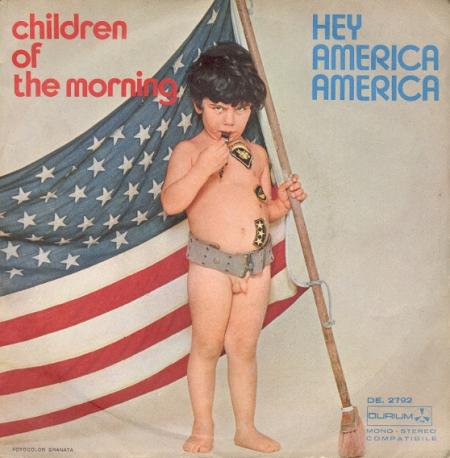
1972
Testo incompleto
The obscure psychedelic rock group Children of the Morning, formed in Italy, released the song "Hey America, America" which criticised the US government for the Kent State killings.
Shel Shapiro, who led the group, composed the song. He had previously played with the British beat group The Rokes (1950s-60s). The narrator questioned the validity / plausibility of the argument that the National Guard fired in self defense: "government pretends that it was self defense". The lyrics then suggested that the killings harmed the reputation of the US: "America you're fucking up", which could have repercussions: "hey America don't push you luck".
The song ended with a general anti-war message, complaining that the "war in Vietnam continues", in which the soldiers "kill woman and children".
Vietnam War Songs Project
Testo incompleto
The obscure psychedelic rock group Children of the Morning, formed in Italy, released the song "Hey America, America" which criticised the US government for the Kent State killings.
Shel Shapiro, who led the group, composed the song. He had previously played with the British beat group The Rokes (1950s-60s). The narrator questioned the validity / plausibility of the argument that the National Guard fired in self defense: "government pretends that it was self defense". The lyrics then suggested that the killings harmed the reputation of the US: "America you're fucking up", which could have repercussions: "hey America don't push you luck".
The song ended with a general anti-war message, complaining that the "war in Vietnam continues", in which the soldiers "kill woman and children".
Vietnam War Songs Project
At the Kent State university, what is going on
(continua)
(continua)
15/10/2022 - 19:43
Fallin' Rain
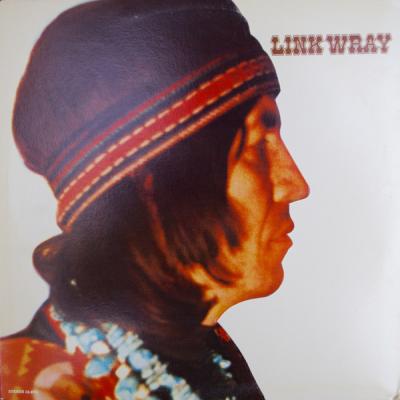
(1971)
Recentemente ripresa in una bellissima versione da Karl Blau in Introducing Karl Blau del 2015
Anche interpretata da Father John Misty in Anthem + 3 (2020)
Recentemente ripresa in una bellissima versione da Karl Blau in Introducing Karl Blau del 2015
Anche interpretata da Father John Misty in Anthem + 3 (2020)
I hear the sound, it's goin' through my brain
(continua)
(continua)
27/9/2020 - 14:47
The Chicago Conspiracy
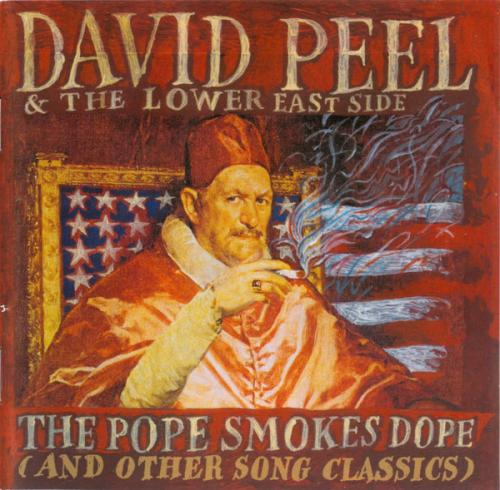
(1972)
dall'album del 1972 "The Pope Smokes Dope" prodotto da John Lennon e Yoko Ono
dall'album del 1972 "The Pope Smokes Dope" prodotto da John Lennon e Yoko Ono
On this 1972 album featured the song "The Chicago Conspiracy" (Apple Records # SW 3391) which addressed both the 1968 Chicago demonstrations and the "Chicago Eight" - the narrator listed all eight of the high-profile protesters arrested and charged, including Bobby Seale, which many other songs excluded in favour of the "seven". The song placed blame on the Chicago mayor: "Daley made this place a city of disgrace". The narrator said that the arrests and trial revealed that "we're not free in this society". It encouraged the listener to "kill..fight...never run" and to keep "marching against the great injustice".
Vietnam War Songs Project
Vietnam War Songs Project
Chicago, Chicago, Chicago, Chicago
(continua)
(continua)
22/8/2020 - 00:04
Long Black Wall
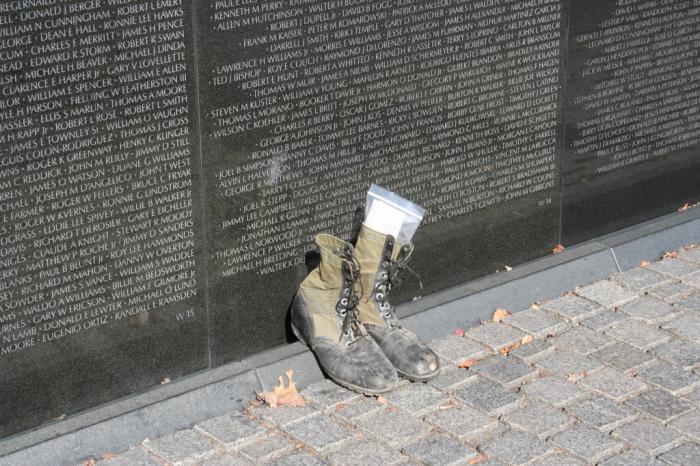
A beautiful contemporary folk song, "Long Black Wall" , one of the first songs written and released about the memorial. It looked back at the idealistic early days of the war, wanting to fight communism and become a soldier.
Then he recalled the growth of the protest movement, referencing demonstrations outside the Democratic National Convention in Chicago in August 1968.
It then looked at the college days
with a reference to President Richard Nixon , and hippie culture. The song then turned to the impact of the war on the returning veterans.
( da Vietnam War Song Project )
Il Vietnam Veterans Memorial ("Memoriale dei veterani del Vietnam") è un memoriale di guerra degli Stati Uniti. Si trova a Washington, e onora i membri della forze armate americane che combatterono e persero la vita durante la guerra del Vietnam. In ordine cronologico vengono elencati i nomi delle 58.318 vittime... (continua)
Then he recalled the growth of the protest movement, referencing demonstrations outside the Democratic National Convention in Chicago in August 1968.
It then looked at the college days
with a reference to President Richard Nixon , and hippie culture. The song then turned to the impact of the war on the returning veterans.
( da Vietnam War Song Project )
Il Vietnam Veterans Memorial ("Memoriale dei veterani del Vietnam") è un memoriale di guerra degli Stati Uniti. Si trova a Washington, e onora i membri della forze armate americane che combatterono e persero la vita durante la guerra del Vietnam. In ordine cronologico vengono elencati i nomi delle 58.318 vittime... (continua)
A Green Beret came to talk to us
(continua)
(continua)
inviata da L.E. 28/5/2020 - 07:38
Diana (Part I & II)
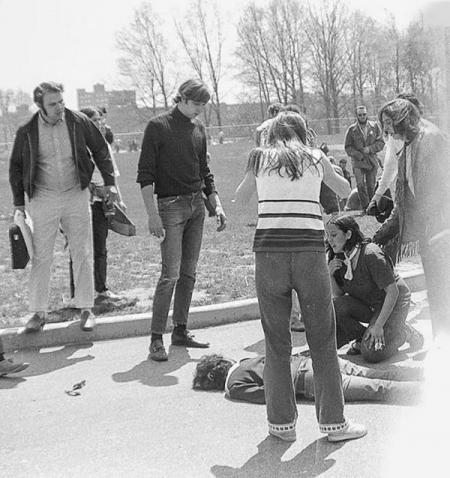
(1971)
dall'album Sunfighter (Paul Kantner & Grace Slick) sulla cui copertina campeggiava la figlia appena nata di Paul Kantner & Grace Slick, China
Una canzone divisa in due parti. La prima è dedicata Diana Oughton, studentessa impegnata nel gruppo "Students for a Democratic Society" e poi nel gruppo radicale dei Weathermen, rimasta uccisa nel 1970 mentre preparava una bomba per "portare a casa" la guerra che gli USA conducevano nel Vietnam.
La seconda parte, a cui partecipano alle voci David Crosby e Graham Nash, è dedicata agli studenti uccisi alla Kent State University mentre protestavano contro la guerra.
dall'album Sunfighter (Paul Kantner & Grace Slick) sulla cui copertina campeggiava la figlia appena nata di Paul Kantner & Grace Slick, China
Una canzone divisa in due parti. La prima è dedicata Diana Oughton, studentessa impegnata nel gruppo "Students for a Democratic Society" e poi nel gruppo radicale dei Weathermen, rimasta uccisa nel 1970 mentre preparava una bomba per "portare a casa" la guerra che gli USA conducevano nel Vietnam.
La seconda parte, a cui partecipano alle voci David Crosby e Graham Nash, è dedicata agli studenti uccisi alla Kent State University mentre protestavano contro la guerra.
Part I
(continua)
(continua)
inviata da Lorenzo 29/3/2020 - 20:20
Sit Down Young Stranger

[1969]
Parole e musica di Gordon Lightfoot
La title track dell'album pubblicato nel 1970 che venne poi subito reintitolato "If You Could Read My Mind", a causa del grande successo di quest'altra canzone.
"Sit Down Young Stranger" è una canzone bellissima ma complessa e per questo ci è finora sfuggita come autentica ed imprescindibile CCG/AWS... Racconta di un dialogo serrato e difficile tra un giovane, che da poco ha fatto ritorno a casa, e i suoi genitori, manifestamente ostili alle scelte del figlio, tanto da considerarlo uno straniero. I genitori sono un padre e una madre come tanti, lui burbero e pratico, lei amorevole e silenziosa, soggetta al marito... Entrambi vorrebbero un futuro regolare e di successo per il proprio figlio, che invece è un idealista che ha per giunto scelto di disertare per non andare a combattere in Vietnam, e si è rifugiato per parecchio tempo all'estero, forse... (continua)
Parole e musica di Gordon Lightfoot
La title track dell'album pubblicato nel 1970 che venne poi subito reintitolato "If You Could Read My Mind", a causa del grande successo di quest'altra canzone.
"Sit Down Young Stranger" è una canzone bellissima ma complessa e per questo ci è finora sfuggita come autentica ed imprescindibile CCG/AWS... Racconta di un dialogo serrato e difficile tra un giovane, che da poco ha fatto ritorno a casa, e i suoi genitori, manifestamente ostili alle scelte del figlio, tanto da considerarlo uno straniero. I genitori sono un padre e una madre come tanti, lui burbero e pratico, lei amorevole e silenziosa, soggetta al marito... Entrambi vorrebbero un futuro regolare e di successo per il proprio figlio, che invece è un idealista che ha per giunto scelto di disertare per non andare a combattere in Vietnam, e si è rifugiato per parecchio tempo all'estero, forse... (continua)
I'm standing' at the doorway, my head bowed in my hands
(continua)
(continua)
inviata da Bernart Bartleby 15/7/2019 - 22:23
Ballad of William White
[1966]
Parole di Katherine Faith Macky (1921-2006), conosciuta come Willow Macky, cantautrice neozelandese
Sulla melodia dell’ottocentesca The Wild Colonial Boy
Canzone inclusa nella prima edizione del “The Vietnam Songbook”, realizzata nel 1969 da Barbara Dane ed Irwin Silber (1925-2010), editore, scrittore, militante socialista e cofondatore “Sing Out!”
Testo trovato sul sito Raymond’s Folk Song Page curato da Raymond Crooke, che di ogni canzone offre anche una sua cover. Pure l’introduzione che segue è sua:
A few days ago I put up a song called "The Ballad of Bill White", by Glen Tomasetti, about an Australian teacher who was jailed as a conscientious objector to the Vietnam war. This is another song about the same story, written by a New Zealander, to the tune of "The Wild Colonial Boy", and published in Barbara Dane's and Irwin Silber's "The Vietnam Songbook" (1969). Macky is quoted... (continua)
Parole di Katherine Faith Macky (1921-2006), conosciuta come Willow Macky, cantautrice neozelandese
Sulla melodia dell’ottocentesca The Wild Colonial Boy
Canzone inclusa nella prima edizione del “The Vietnam Songbook”, realizzata nel 1969 da Barbara Dane ed Irwin Silber (1925-2010), editore, scrittore, militante socialista e cofondatore “Sing Out!”
Testo trovato sul sito Raymond’s Folk Song Page curato da Raymond Crooke, che di ogni canzone offre anche una sua cover. Pure l’introduzione che segue è sua:
A few days ago I put up a song called "The Ballad of Bill White", by Glen Tomasetti, about an Australian teacher who was jailed as a conscientious objector to the Vietnam war. This is another song about the same story, written by a New Zealander, to the tune of "The Wild Colonial Boy", and published in Barbara Dane's and Irwin Silber's "The Vietnam Songbook" (1969). Macky is quoted... (continua)
There was a young Australian boy, his name was William White.
(continua)
(continua)
inviata da Bernart Bartleby 16/2/2016 - 15:54
The Ballad of Bill White
[1968]
Parole e musica di Glen Tomasetti (1929-2003)
Il lato A di un 45” di questa oggi misconosciuta cantautrice australiana che negli anni 60 fu - prima ancora di Eric Bogle - la voce più importante contro il coinvolgimento dell’Australia nella guerra in Vietnam.
Testo trascritto da Raymond Crooke e contribuito – insieme alla cover - sul suo bel sito Raymond’s Folk Song Page. Anche l’introduzione che segue è di Raymond Crooke, cui il disco della Tomasetti fu regalato da uno zio quando era ragazzo.
Finora era stato possibile reperire in Rete solo il testo del brano sul lato B, The Army’s Appeal to Mothers
This song was released on an EP during the Vietnam war. The B side featured two songs, the better of which is the hard-hitting "The Army’s Appeal to Mothers", which was published in Barbara Dane's and Irwin Silber's "The Vietnam Songbook" (1969). However, this song, about a teacher... (continua)
Parole e musica di Glen Tomasetti (1929-2003)
Il lato A di un 45” di questa oggi misconosciuta cantautrice australiana che negli anni 60 fu - prima ancora di Eric Bogle - la voce più importante contro il coinvolgimento dell’Australia nella guerra in Vietnam.
Testo trascritto da Raymond Crooke e contribuito – insieme alla cover - sul suo bel sito Raymond’s Folk Song Page. Anche l’introduzione che segue è di Raymond Crooke, cui il disco della Tomasetti fu regalato da uno zio quando era ragazzo.
Finora era stato possibile reperire in Rete solo il testo del brano sul lato B, The Army’s Appeal to Mothers
This song was released on an EP during the Vietnam war. The B side featured two songs, the better of which is the hard-hitting "The Army’s Appeal to Mothers", which was published in Barbara Dane's and Irwin Silber's "The Vietnam Songbook" (1969). However, this song, about a teacher... (continua)
In New South Wales there lives a man, a teacher young and true,
(continua)
(continua)
inviata da Bernart Bartleby 16/2/2016 - 15:05
The World Today
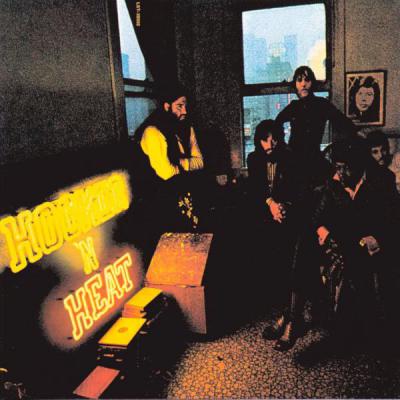
[1970]
Scritta da John Lee Hooker
Nell’album intitolato “Hooker 'N Heat” del 1971, con il bluesman accompagnato dalla band dei Canned Heat.
“I giovani combattono in ogni città, in ogni campus universitario, non so se fanno bene o male ma combattono per il loro diritti…”
E ragioni per combattere in quel 1970 ce n’erano state a strafottere: l’assoluzione dei “Chicago Seven” per i disordini alla convention del Partito Democratico nel 1968, il massacro di My Lai in Vietnam, l’invasione americana della neutrale Cambogia, l’uccisione di 4 studenti da parte della Guardia nazionale durante le proteste contro la guerra alla Kent University dell’Ohio, la marcia su Washington del 9 maggio, i test nucleari francesi a Mururoa, il festival rock all’isola di Wight, il “Settembre Nero” palestinese in Giordania, l’elezione di Salvador Allende in Cile (preceduta di poco dall’assassinio, ordito dalla CIA, di René Schneider Chereau, un generale democratico che lo appoggiava), la nascita del regime segregazionista in Rhodesia…
Scritta da John Lee Hooker
Nell’album intitolato “Hooker 'N Heat” del 1971, con il bluesman accompagnato dalla band dei Canned Heat.
“I giovani combattono in ogni città, in ogni campus universitario, non so se fanno bene o male ma combattono per il loro diritti…”
E ragioni per combattere in quel 1970 ce n’erano state a strafottere: l’assoluzione dei “Chicago Seven” per i disordini alla convention del Partito Democratico nel 1968, il massacro di My Lai in Vietnam, l’invasione americana della neutrale Cambogia, l’uccisione di 4 studenti da parte della Guardia nazionale durante le proteste contro la guerra alla Kent University dell’Ohio, la marcia su Washington del 9 maggio, i test nucleari francesi a Mururoa, il festival rock all’isola di Wight, il “Settembre Nero” palestinese in Giordania, l’elezione di Salvador Allende in Cile (preceduta di poco dall’assassinio, ordito dalla CIA, di René Schneider Chereau, un generale democratico che lo appoggiava), la nascita del regime segregazionista in Rhodesia…
I wonder why this world is the way it is
(continua)
(continua)
inviata da Bernart Bartleby 16/12/2014 - 11:43
Driving Through Mythical America
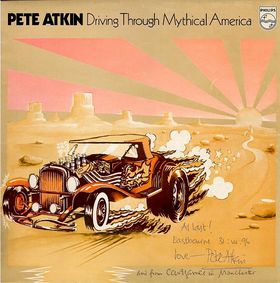
[1971]
Canzone che dà il titolo a questo secondo album di Pete Atkin e Clive James.
Parole di Clive James
Musica di Pete Atkin
Come Hey Sandy, The Kent State Massacre, Jackson-Kent Blues e, soprattutto, Ohio, ancora una canzone su di un evento che sconvolse l’opinione pubblica americana e mondiale, il massacro nei campus della Kent e della Jackson University, quando tutti capirono che il governo di Nixon non solo trucidava i vietnamiti, non solo mandava a morire i suoi giovani in Vietnam ma assassinava i propri cittadini anche negli USA…
Un testo molto ricco di riferimenti letterari e cinematografici, per la cui comprensione rimando alle note degli autori.
Canzone che dà il titolo a questo secondo album di Pete Atkin e Clive James.
Parole di Clive James
Musica di Pete Atkin
Come Hey Sandy, The Kent State Massacre, Jackson-Kent Blues e, soprattutto, Ohio, ancora una canzone su di un evento che sconvolse l’opinione pubblica americana e mondiale, il massacro nei campus della Kent e della Jackson University, quando tutti capirono che il governo di Nixon non solo trucidava i vietnamiti, non solo mandava a morire i suoi giovani in Vietnam ma assassinava i propri cittadini anche negli USA…
Un testo molto ricco di riferimenti letterari e cinematografici, per la cui comprensione rimando alle note degli autori.
Four students in the usual light of day
(continua)
(continua)
inviata da Bartleby 21/12/2011 - 13:36
The Kent State Massacre
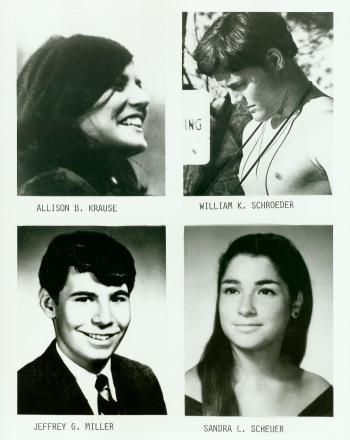
[1970]
Words by Jack Warshaw and Barbara Dane.
Melody from The Death of Harry Simms (Aunt Molly Jackson).
Album “I Hate the Capitalist System”,
Paredon Records, 1973.
“The capitalist system, since its earliest days when little children were employed in the mills and sweatshops, has destroyed its young. In recent times it has demonstrated that it will not tolerate the most modest challenge to its power by murdering students during peaceful demonstrations on campuses.
There is a direct line of continuity from the murders at Orangeburg of Sam Hammon, 18, Delano Middleton, 17, and Henry Smith, 18, to the murders at Jackson State in Mississippi of Phillip Gibbs, 19 and James Green, 17, to the murders at Kent State, Ohio.
The line continues to the needless victimization of hundreds of thousands of their generation who were sent away to fight and die or come home maimed in body or spirit,... (continua)
Words by Jack Warshaw and Barbara Dane.
Melody from The Death of Harry Simms (Aunt Molly Jackson).
Album “I Hate the Capitalist System”,
Paredon Records, 1973.
“The capitalist system, since its earliest days when little children were employed in the mills and sweatshops, has destroyed its young. In recent times it has demonstrated that it will not tolerate the most modest challenge to its power by murdering students during peaceful demonstrations on campuses.
There is a direct line of continuity from the murders at Orangeburg of Sam Hammon, 18, Delano Middleton, 17, and Henry Smith, 18, to the murders at Jackson State in Mississippi of Phillip Gibbs, 19 and James Green, 17, to the murders at Kent State, Ohio.
The line continues to the needless victimization of hundreds of thousands of their generation who were sent away to fight and die or come home maimed in body or spirit,... (continua)
Brothers, listen to my story,
(continua)
(continua)
inviata da Alessandro 17/3/2010 - 13:04
Instant Sentence (Talking Law and Order Blues)
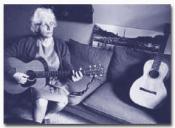
[1967]
Words and music by Malvina Reynolds.
Testo trovato su Broadside Magazine n.86 del novembre 1967.
La canzone si riferisce alle manifestazioni contro la guerra in Vietnam ed alla consuetudine da parte delle “forze dell’ordine” di attaccarle sempre con estrema violenza.
Words and music by Malvina Reynolds.
Testo trovato su Broadside Magazine n.86 del novembre 1967.
La canzone si riferisce alle manifestazioni contro la guerra in Vietnam ed alla consuetudine da parte delle “forze dell’ordine” di attaccarle sempre con estrema violenza.
[spoken] Well the boy won't move,
(continua)
(continua)
inviata da Alessandro 9/6/2009 - 14:03
Boraxo
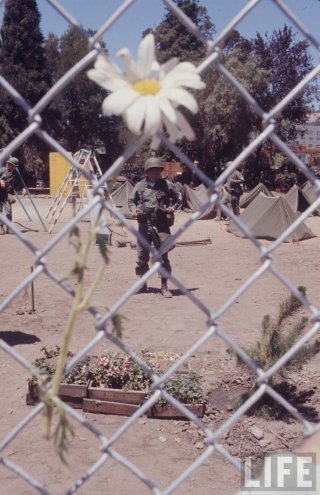
[1969]
Lyrics and music by Malvina Reynolds
Testo e musica di Malvina Reynolds
A Berkeley, vicino all’Università della California, c’è una vasta area verde chiamata People’s Park.
Il parco fu voluto dall’Università, ma nel 1967 furono i commercianti, i residenti e gli studenti a farne una “free speach area”, un polmone verde che servisse però anche a luogo d’incontro e di libera discussione per la cittadinanza e gli studenti. Nel 1969 più di 1000 volontari allestirono in breve tempo il People’s Park, senza che le autorità locali e universitarie vi si opponessero.
Ma l’allora governatore della California, il futuro presidente Ronald Reagan, pensava che quel parco fosse solo il luogo d’incontro per “simpatizzanti comunisti, contestatori e sessualmente deviati”. E il 15 maggio 1969 mandò la polizia a riprendersi People’s Park. Fra i poliziotti si distinserò per particolare ferocia i cosiddetti... (continua)
Lyrics and music by Malvina Reynolds
Testo e musica di Malvina Reynolds
A Berkeley, vicino all’Università della California, c’è una vasta area verde chiamata People’s Park.
Il parco fu voluto dall’Università, ma nel 1967 furono i commercianti, i residenti e gli studenti a farne una “free speach area”, un polmone verde che servisse però anche a luogo d’incontro e di libera discussione per la cittadinanza e gli studenti. Nel 1969 più di 1000 volontari allestirono in breve tempo il People’s Park, senza che le autorità locali e universitarie vi si opponessero.
Ma l’allora governatore della California, il futuro presidente Ronald Reagan, pensava che quel parco fosse solo il luogo d’incontro per “simpatizzanti comunisti, contestatori e sessualmente deviati”. E il 15 maggio 1969 mandò la polizia a riprendersi People’s Park. Fra i poliziotti si distinserò per particolare ferocia i cosiddetti... (continua)
It's all right, it's all right,
(continua)
(continua)
inviata da Alessandro 9/6/2009 - 11:47
Hey Sandy
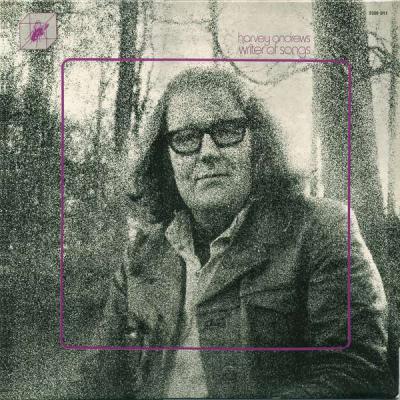
"Hey Sandy on the album 'Writer of Songs' (1972) is another description of the senseless loss of a young life in conflict. It is based on the death of a female student, Sandra Scheuer, who was shot by the Ohio National Guard at the Kent State University in the U.S. anti Vietnam War demonstration of 1970, although, unlike the Sandy of Andrews' song, the real student was not directly involved in the demonstration. The album version of the song is an unusual, but powerful, arrangement, in which the first verse is sung to the accompaniment of a solo double bass, played by Danny Thompson. The recording was never issued in the USA until Kent State University's commemorative CD was released in 2005. It reached number 2 in the New Zealand chart in November 1972.
en.wikipedia
(B.B.)
en.wikipedia
(B.B.)
Hey Sandy, hey Sandy why were you the one?
(continua)
(continua)
inviata da Alessandro 4/11/2008 - 23:19
Student Demonstration Time
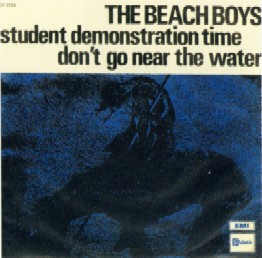
da Surf's Up (1971)
Based on "Riot in Cell Block Number 9" -originally written by Jerry Leiber and Mike Stoller in 1954
Based on "Riot in Cell Block Number 9" -originally written by Jerry Leiber and Mike Stoller in 1954
If you lived through the 60s, the civil riots, the unrest, the anti-war demonstrations, the crowds of unruly students in the streets, with hundreds of young soldiers dying every day -- every day, and in-depth TV coverage of people being shot at close range coming into our living rooms every night, you might have more understanding of "the why and wherefore" of the song.
Michael was seeing all this going on in Santa Barbara, California, where he lived. It was in his front yard. It was in all our lives. It was a sick time. The country was sick. And much of it was needless. Michael was moved to write a song about war protest. His approach was to offer vocal advice to the listener as to what to do when you may be caught up in one of these civil unrests -- so as not to get killed. Remember, Kent State was still in the news when the lyrics were written.
Stephen W. Desper, engineer of the Beach Boys
Michael was seeing all this going on in Santa Barbara, California, where he lived. It was in his front yard. It was in all our lives. It was a sick time. The country was sick. And much of it was needless. Michael was moved to write a song about war protest. His approach was to offer vocal advice to the listener as to what to do when you may be caught up in one of these civil unrests -- so as not to get killed. Remember, Kent State was still in the news when the lyrics were written.
Stephen W. Desper, engineer of the Beach Boys
Starting out with Berkeley Free Speech
(continua)
(continua)
28/1/2006 - 20:01
Tin Omen
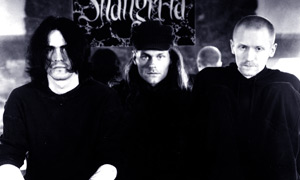
[1989]
Album: Rabies
This song compare the Kent shootings (see Ohio by CSN&Y) to the 1989 Tiananmen Square Massacre.
Questa canzone paragona la sparatoria alla Kent University (vedi anche Ohio di CSN&Y) al massacro di piazza Tien An Men
Album: Rabies
This song compare the Kent shootings (see Ohio by CSN&Y) to the 1989 Tiananmen Square Massacre.
Questa canzone paragona la sparatoria alla Kent University (vedi anche Ohio di CSN&Y) al massacro di piazza Tien An Men
every truncheon hit misguided the people's army divided united stance amped
(continua)
(continua)
5/6/2005 - 23:13
×
![]()

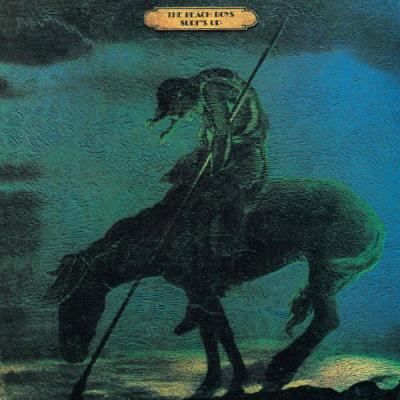

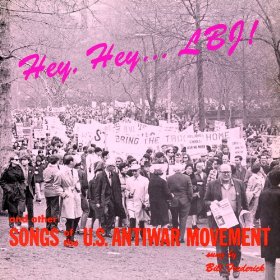
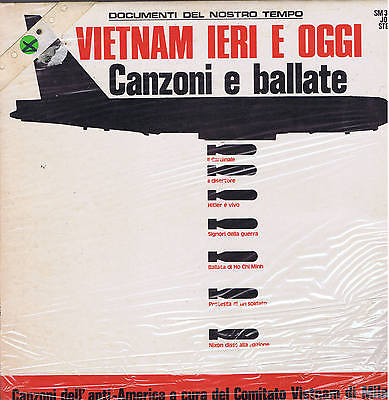
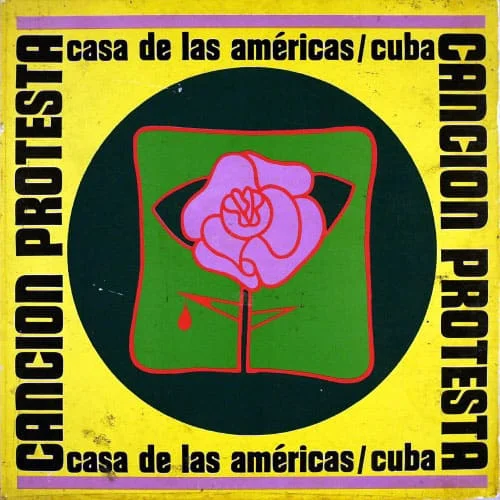
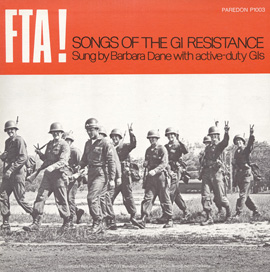
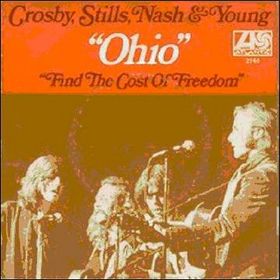
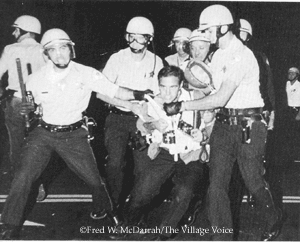

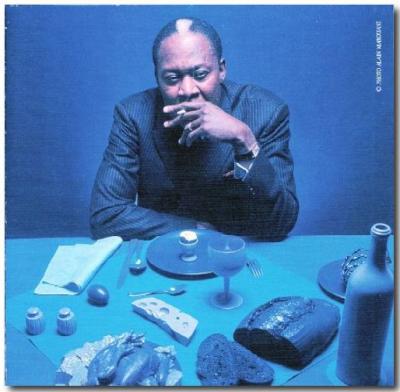
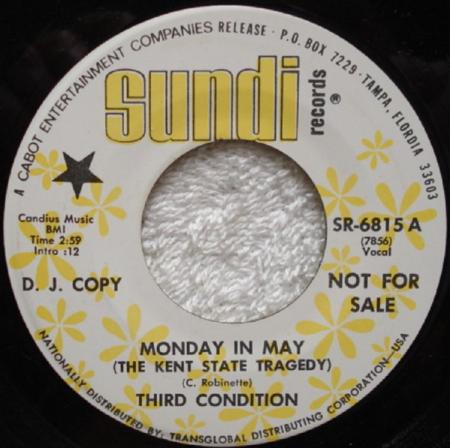
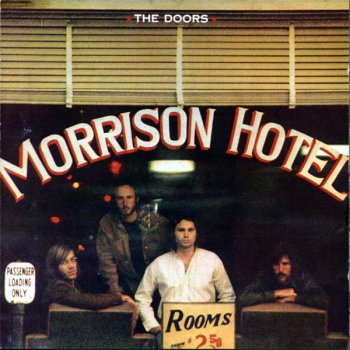
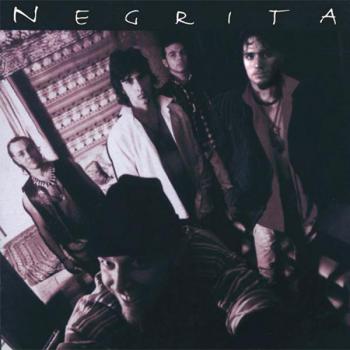
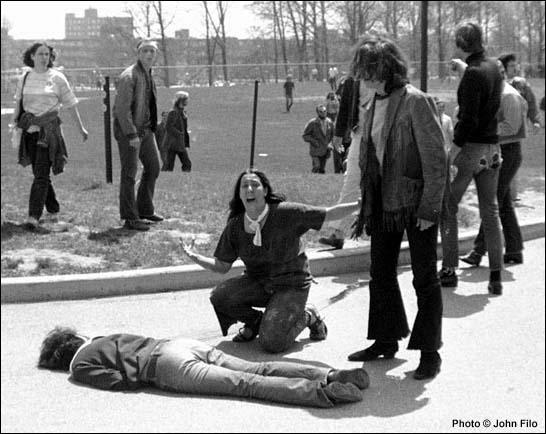
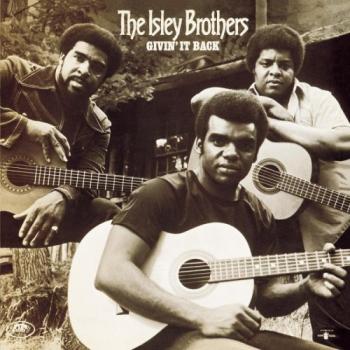
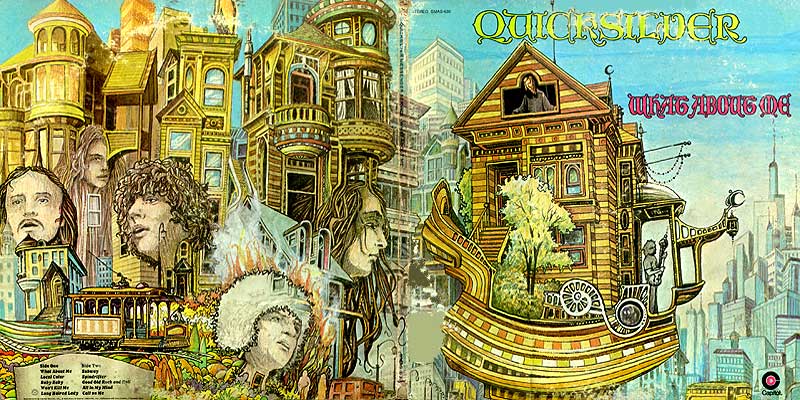
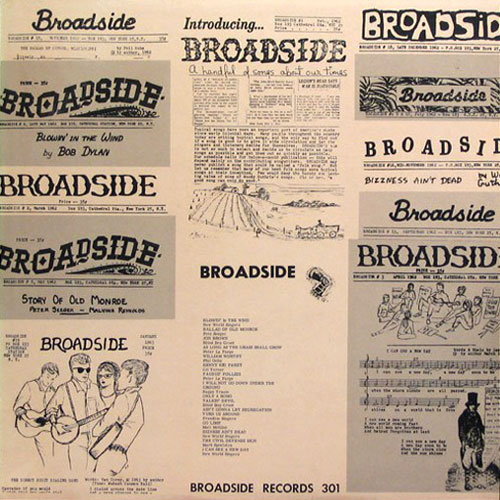
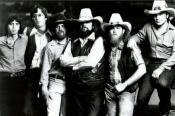
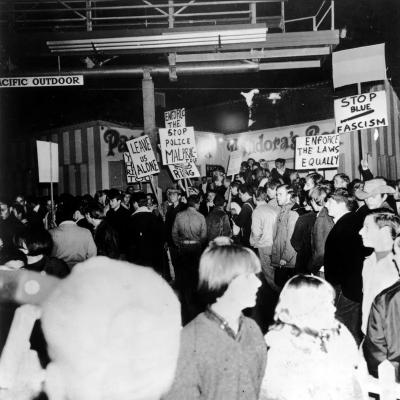
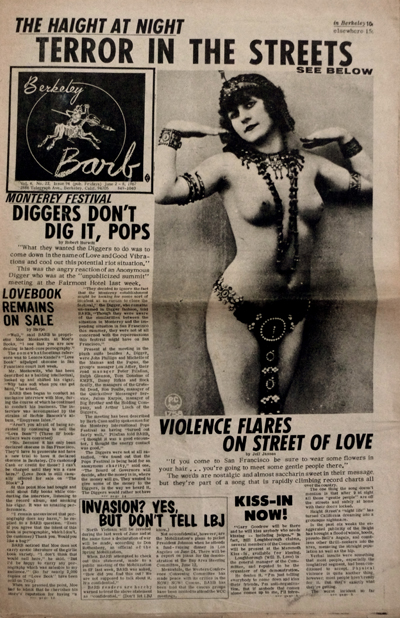
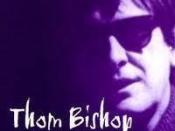
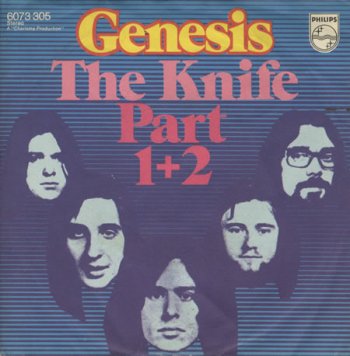
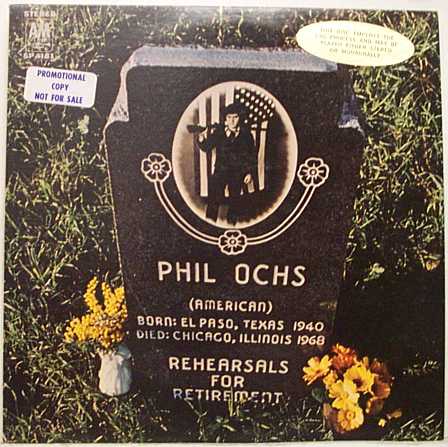
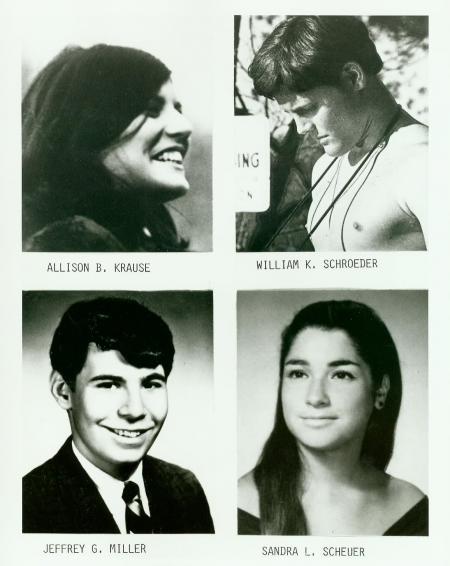
[1971]
Un brano rimasto fuori dall'album "Surf's Up" e poi ripreso nella compilation "Good Vibrations - Thirty Years Of The Beach Boys" del 1993.
(B.B.)